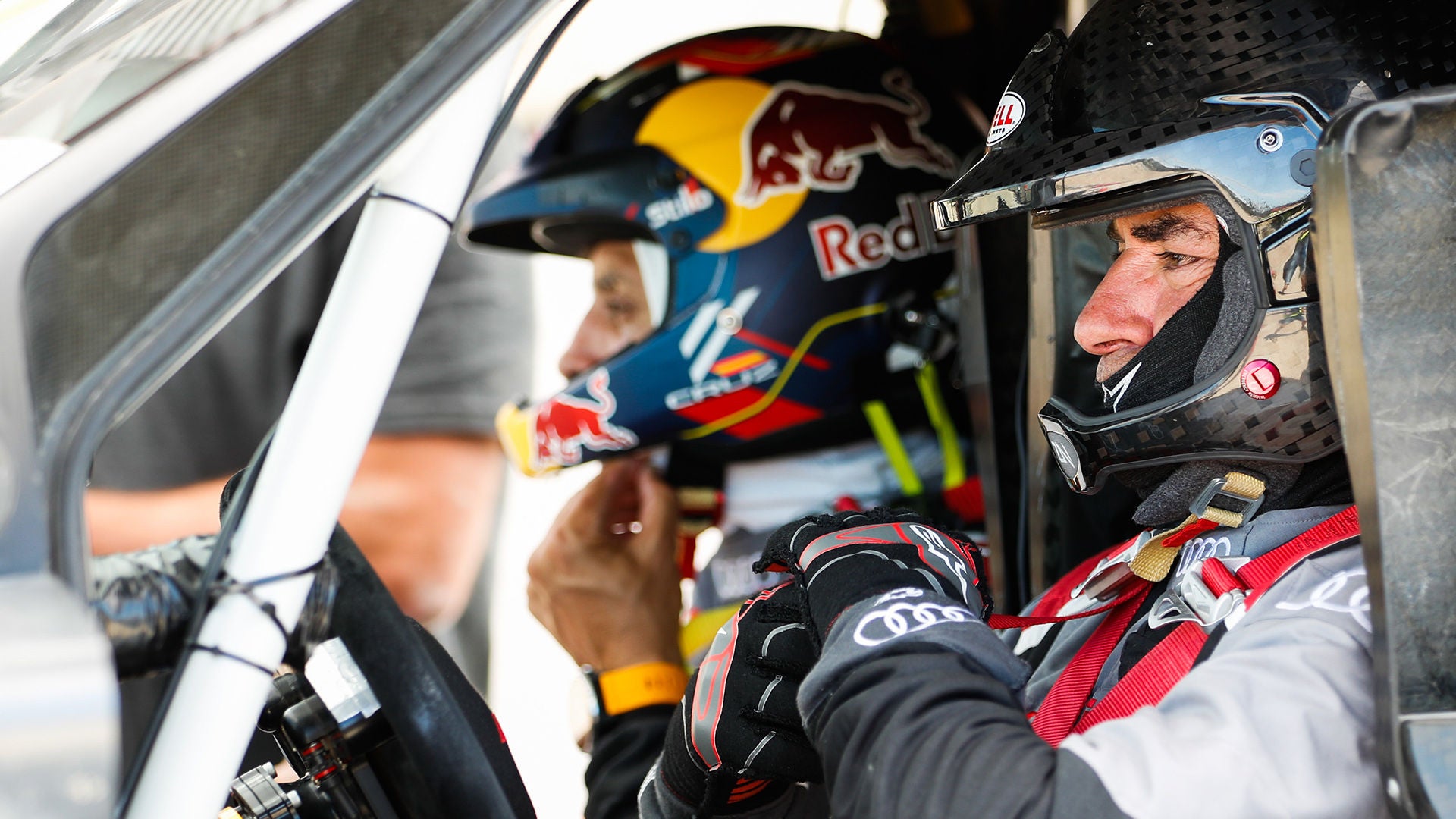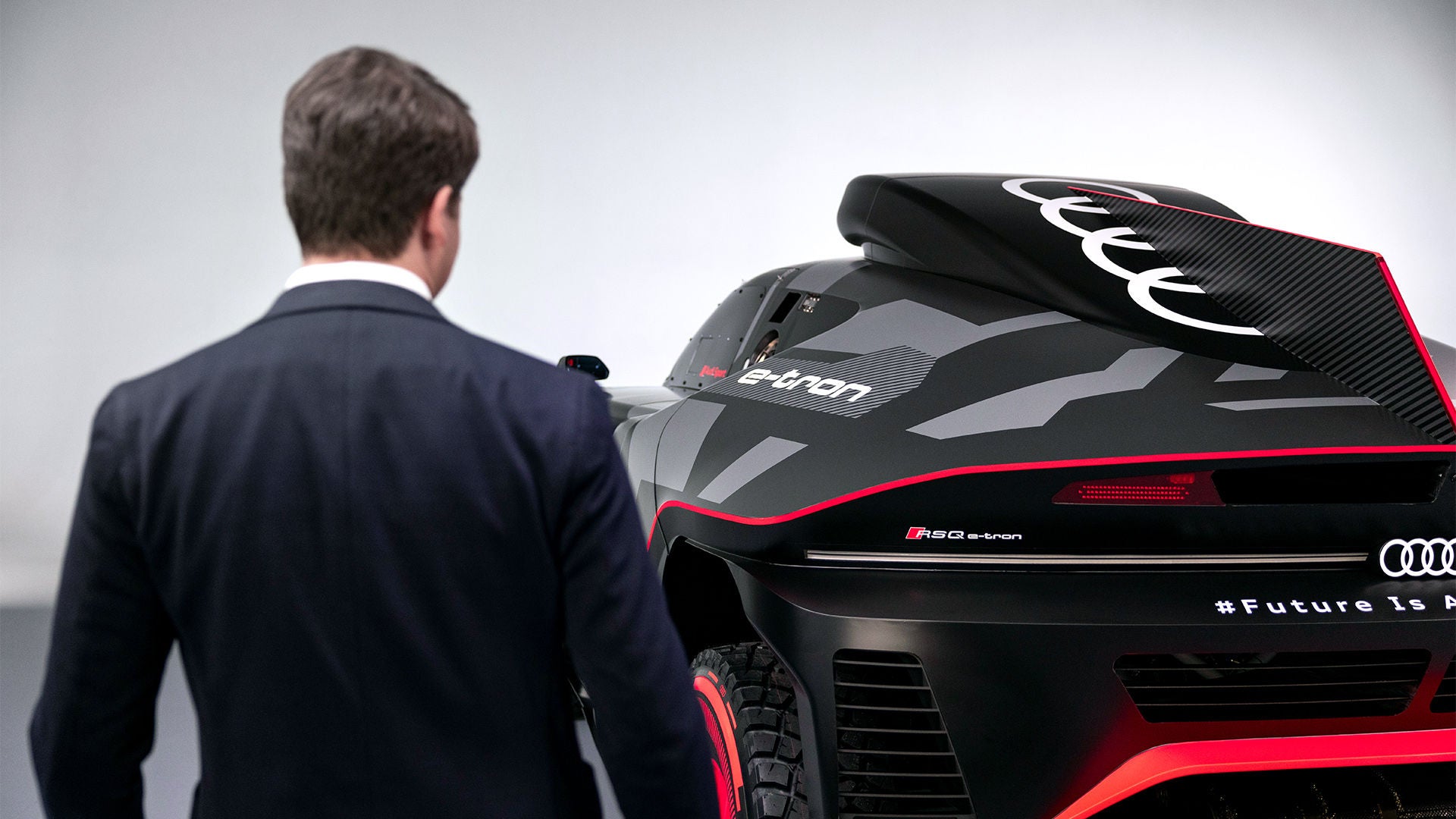“We are excited by the extreme”
missing translation: fa.article-intro.reading-time – Interview: AUDI AG – Photo: Marcus Sauer – 05/01/2023
This vehicle shown here is the Rally Dakar vehicle that is not available as a production model.
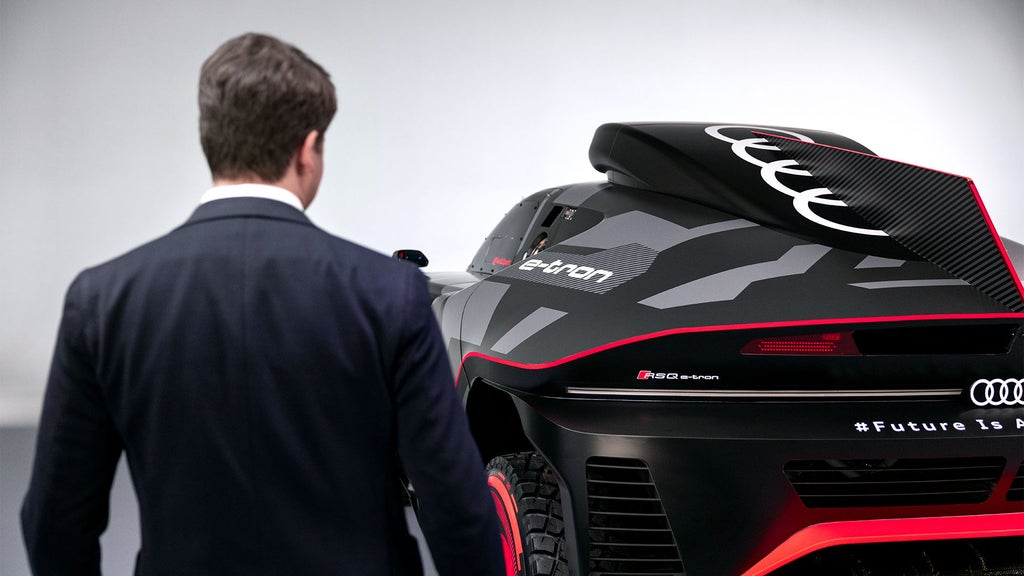
Julius, Formula E has given racing a sustainable image. Now Audi is leaving Formula E and entering the Dakar Rally: Isn’t that a contradiction?
Audi was the first premium German manufacturer to compete in Formula E and the series has accompanied us through a kind of transformation in recent years. However, e-mobility is no longer a vision of the future for us, but the present. The best example of that is our first all-electric high-performance model for the road, the Audi RS e-tron GT, which has been available on the market since the beginning of the year. The Dakar Rally now offers us the opportunity to break new ground. The aim is to present and further develop our technology – in this case an electric powertrain in combination with an energy converter system consisting of a TFSI engine and a generator – under extreme conditions.
But there seems to be a lot of room for maneuver between Formula E and rally: Why did you choose this extreme?
Because the extreme is exactly what excites us. Audi has always dared to do things in motorsport that no one really dared to do before. The quattro drive revolutionised rally sport in the early 1980s, and Audi also clinched the first victory for a racing car with a hybrid drive at the 24 Hours of Le Mans. For the Dakar project, we are further developing our electric drive concepts under extreme conditions. The Audi RS Q e-tron combines an electric powertrain with an energy converter system consisting of a TFSI engine and a generator. One thing is certain: It is the most technologically demanding vehicle we have ever put into use in racing.
What makes this drive concept stand out?
The vehicle’s powertrain is electric. Because there are no charging stations in the desert, we have chosen an innovative charging concept: On board the Audi RS Q e-tron is the TFSI engine, with which we have won the DTM twice in a row. It is part of an energy converter system that charges the high-voltage battery while driving. The idea is to intelligently connect the various components of the battery, electric drive, and combustion engine and to ensure optimal interaction under extreme conditions
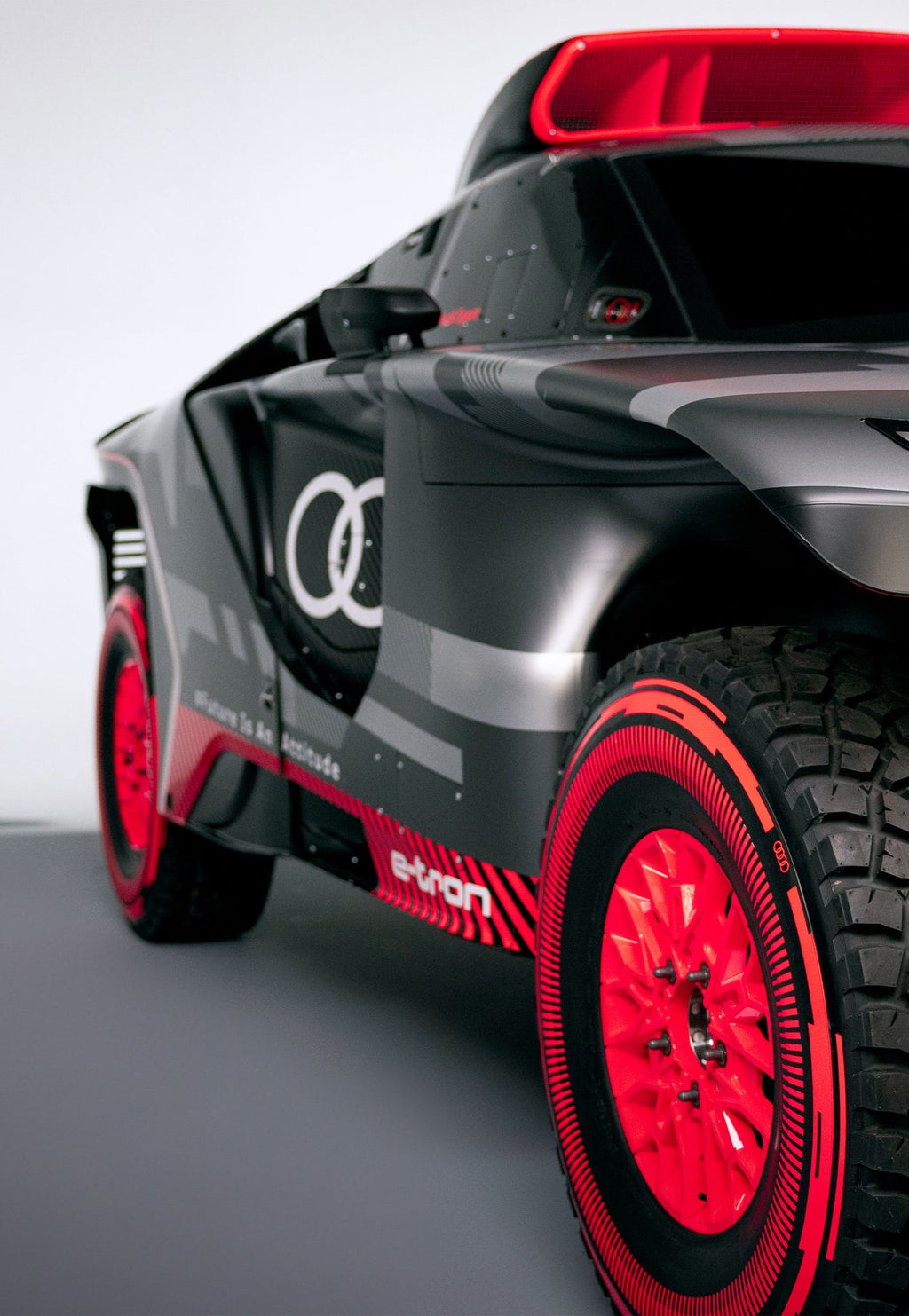
The Audi RS Q e-tron combines an electric powertrain with an energy converter system consisting of a TFSI engine and a generator.
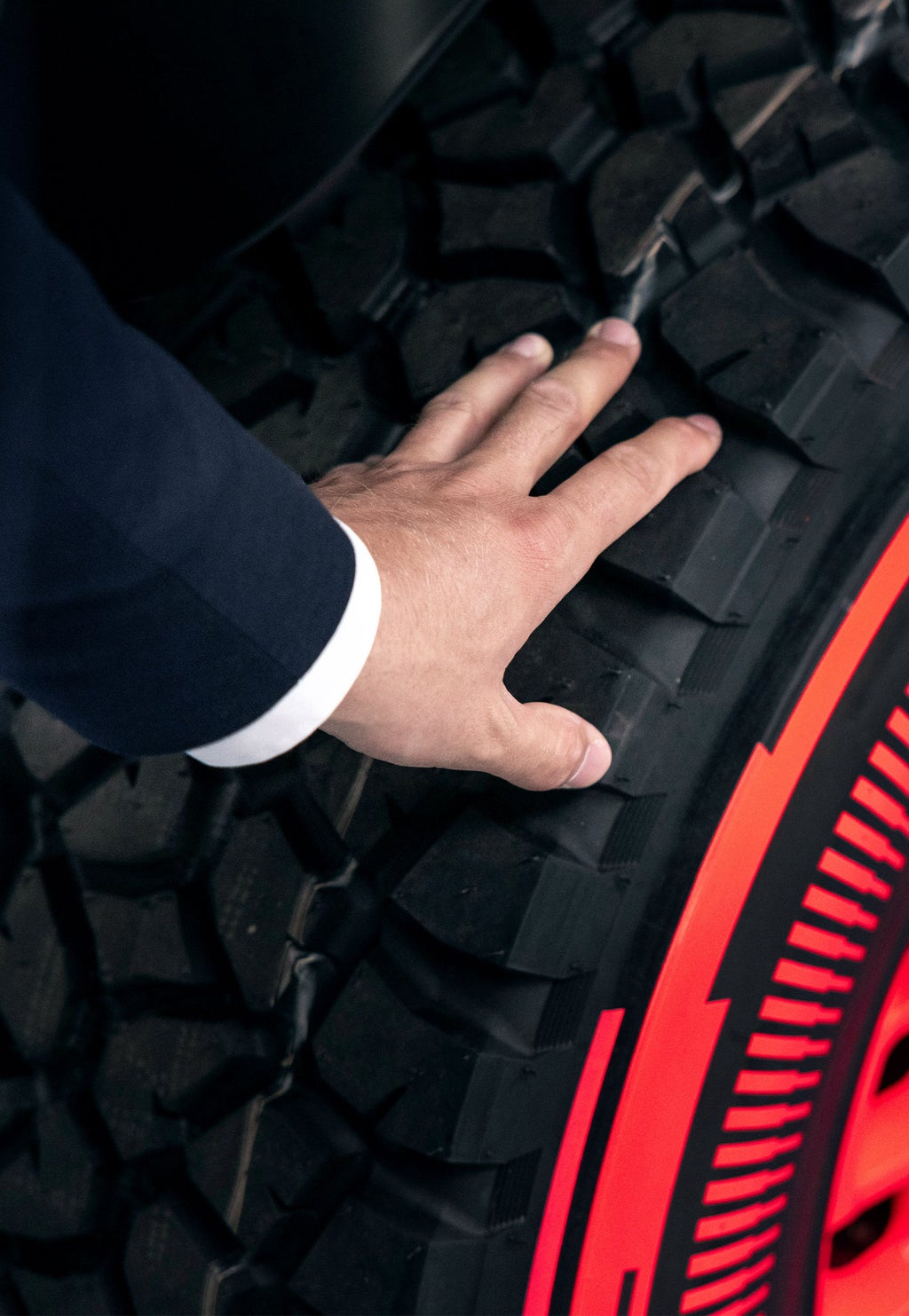
Jumps, sand, long stages in a rally, you have to master different surfaces.
The Audi RS Q e-tron combines an electric powertrain with an energy converter system consisting of a TFSI engine and a generator.
Jumps, sand, long stages in a rally, you have to master different surfaces.
What makes a rally by contrast with a circuit so different? What is the source of the fascination?
It’s hard to make comparisons. Motorsport is always about fine-tuning and perfection but of course there are differences. In a rally, for example, it is important to master different surfaces: bumps, potholes, jumps, water; in the Dakar Rally, sand and dunes are a particular challenge for us. In addition, the race lasts almost two weeks. Every day, up to 800 kilometers are covered, sometimes even more. The technology capable of handling that also overcomes other challenges.
But doesn’t a project like this put Audi Sport’s legendary history of success at risk to a certain extent?
Those who take on the competition risk losing. But the old adage “Nothing ventured, nothing gained” is also true. Entrepreneurial courage has always paid off for Audi so far. I am convinced that this will also be the case at the Dakar Rally. I trust in our engineering skills and the ability to make things possible that many consider impossible. For me, that is “Progress”.
In a way, is it also about filling the last empty space in the Audi Sport trophy cabinet?
The Dakar Rally is one of the biggest challenges in motorsport. Above all, however, it offers us as an automobile manufacturer the opportunity to test new technologies in the context of motor racing for possible future series production. Most racing series today are very heavily regulated and leave little room for innovation that could possibly also fuel series development later on.
And the Dakar Rally is different?
The technical regulations are many pages long. Nevertheless, the scope to show “Vorsprung durch Technik” at the Dakar Rally is much greater. Unlike Formula E, for example, we can use our own batteries and develop them further in the process. Battery technology and energy management in particular offer the greatest development potential for e-mobility.
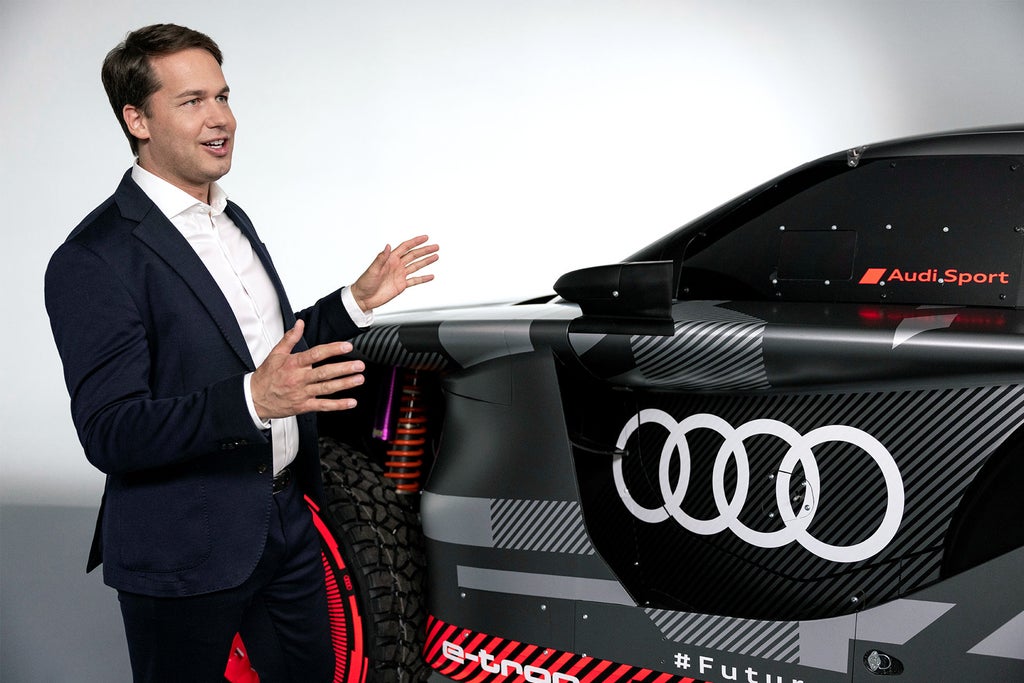
Julius Seebach has been Managing Director of Audi Sport since 2019. He is setting it up for the future with an electrification strategy.
Julius Seebach has been Managing Director of Audi Sport since 2019. He is setting it up for the future with an electrification strategy.
Making things possible that many consider impossible. For me, that is ‘progress’.
Julius Seebach
Let’s talk about the Audi RS Q e-tron. Audi will be launching it in January 2022: In your opinion, what were the biggest challenges in development?
First of all, the development of a racing car is practically never complete. The short development time alone is a major challenge. Less than a year ago, we made the decision to take on the challenge of the Dakar Rally. What we have set out to do in terms of the vehicle is extremely complex and demanding. The pandemic has further complicated some things. The fact that we managed to present the car to the world as planned is a first success and a remarkable team effort. Now the testing begins. It goes on and on.
Time pressure, complexity, demands: Was there that famous moment that made you and the team doubt yourselves?
There were rule changes at a relatively late stage that cost us a lot of time and energy. I am proud of the team, which is highly motivated and masters such challenges confidently.
In summary: What does the Dakar Rally vehicle represent?
It represents future technology that can withstand the most extreme conditions. In a racing car, the motto is: Form follows function. However, our design team has once again proven the high level at which they work, because our Audi RS Q e-tron also looks fantastic and stands out clearly against the previous Dakar prototypes.
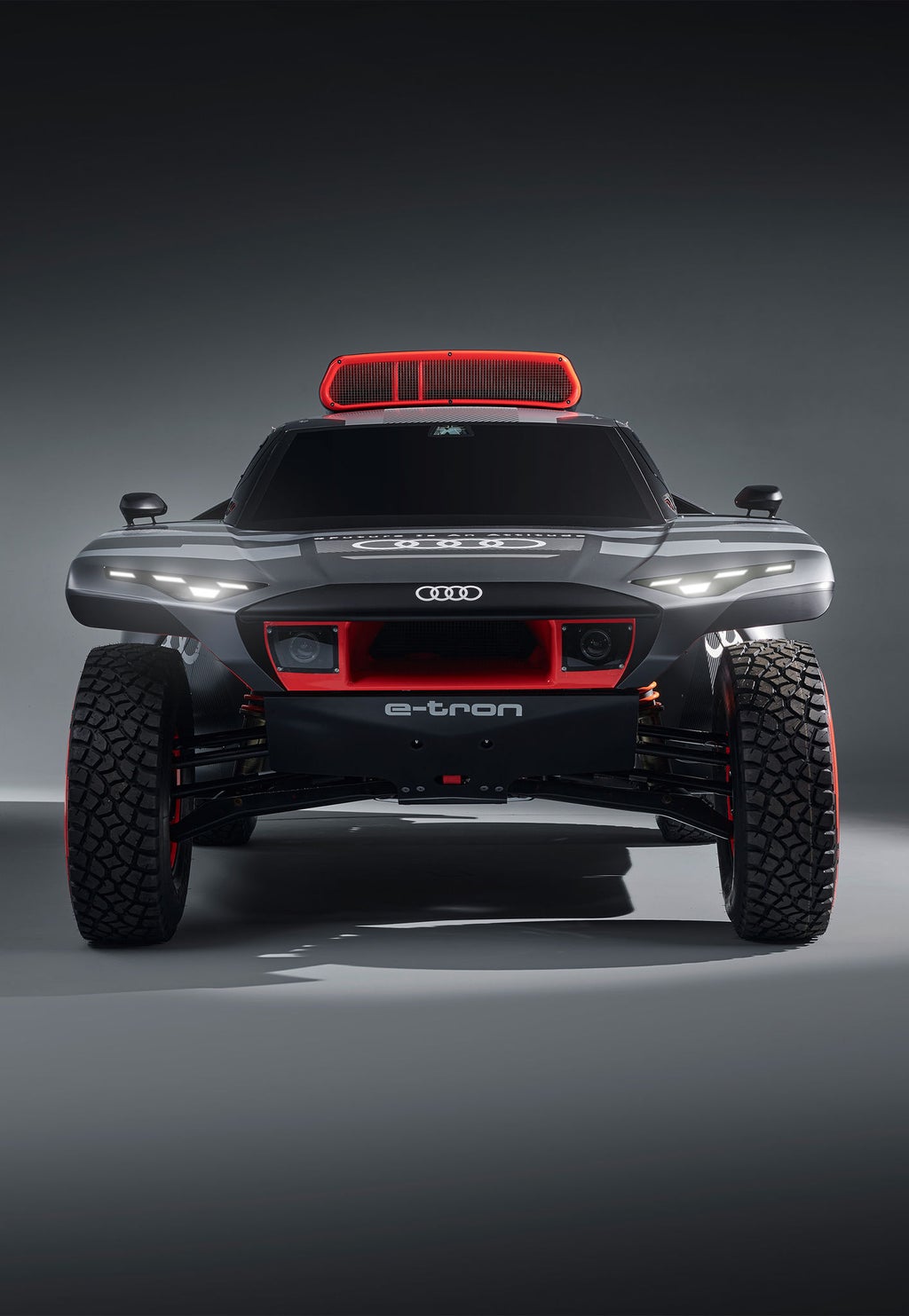
Audi is using the Dakar Rally to test new technologies for possible future series production.
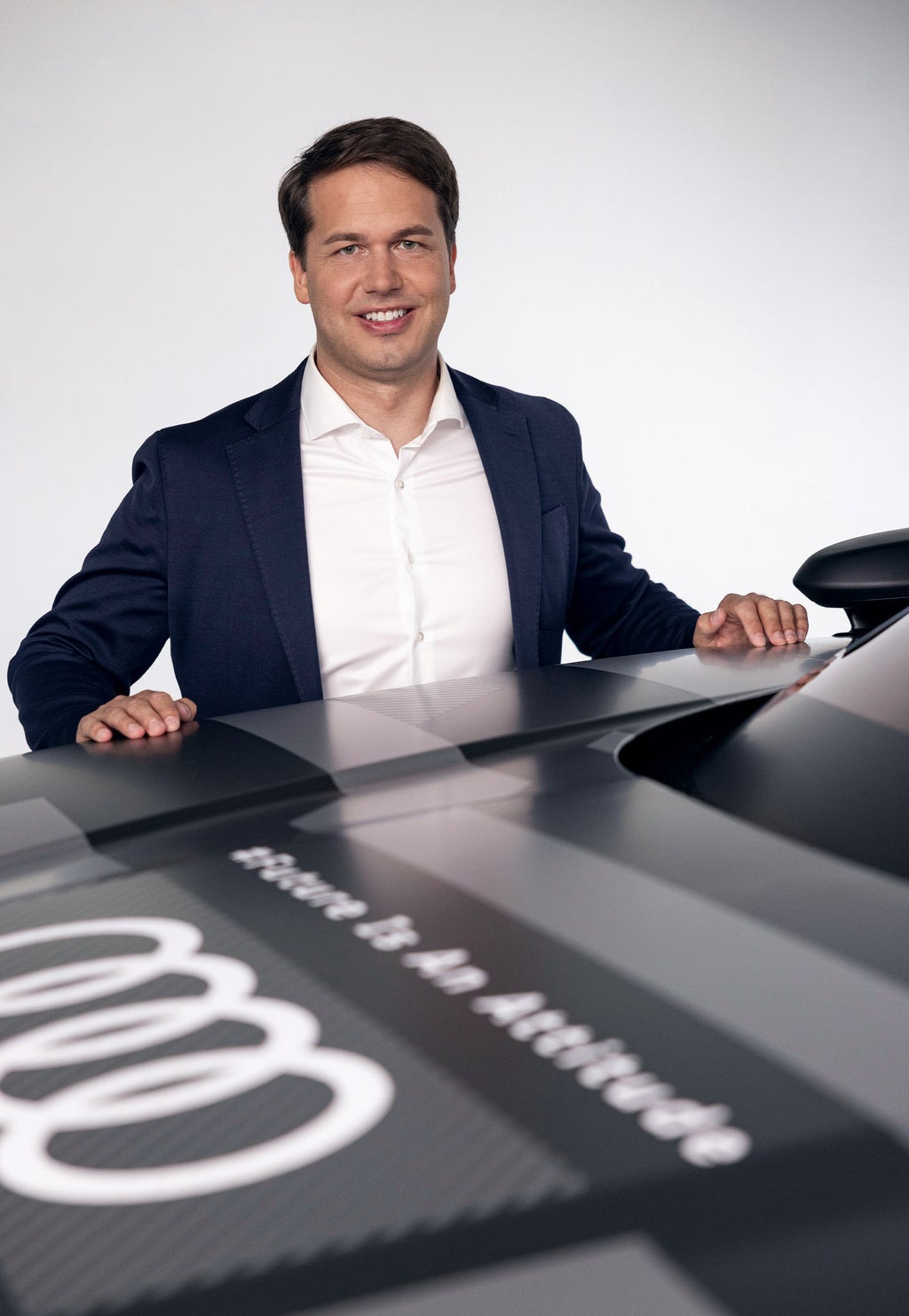
Since December 2020, Julius Seebach has been in charge of Audi Motorsport.
Audi is using the Dakar Rally to test new technologies for possible future series production.
Since December 2020, Julius Seebach has been in charge of Audi Motorsport.
Despite all the technology, how do you find the driver teams to take on this extreme task?
By offering the best rally drivers in the world a new challenge: a vision of driving and winning the Dakar Rally as the first in the standings with an alternative drive concept. That would really shake up the world of rallying and beyond. Stéphane Peterhansel is one of the most successful Dakar Rally drivers of all time, Carlos Sainz is a multiple Dakar Rally winner and World Rally Champion. Both were immediately enthusiastic about our project. We have already celebrated great success at Audi Sport with Mattias Ekström in the past; he is one of the most versatile drivers in the world. In addition to a lot of speed, everyone also brings a huge amount of expertise and motivation to our team. The same applies to their co-drivers, who play an increasingly important role in the Dakar Rally.
One last question, to bring us back to past rally successes: What do you think Walter Röhrl, the 1980s rally legend, will think about the Audi RS Q e-tron when he sees it for the first time?
I’m sure he’ll realise that this concept has the potential to change the automobile just as much as the quattro drive did in his day.
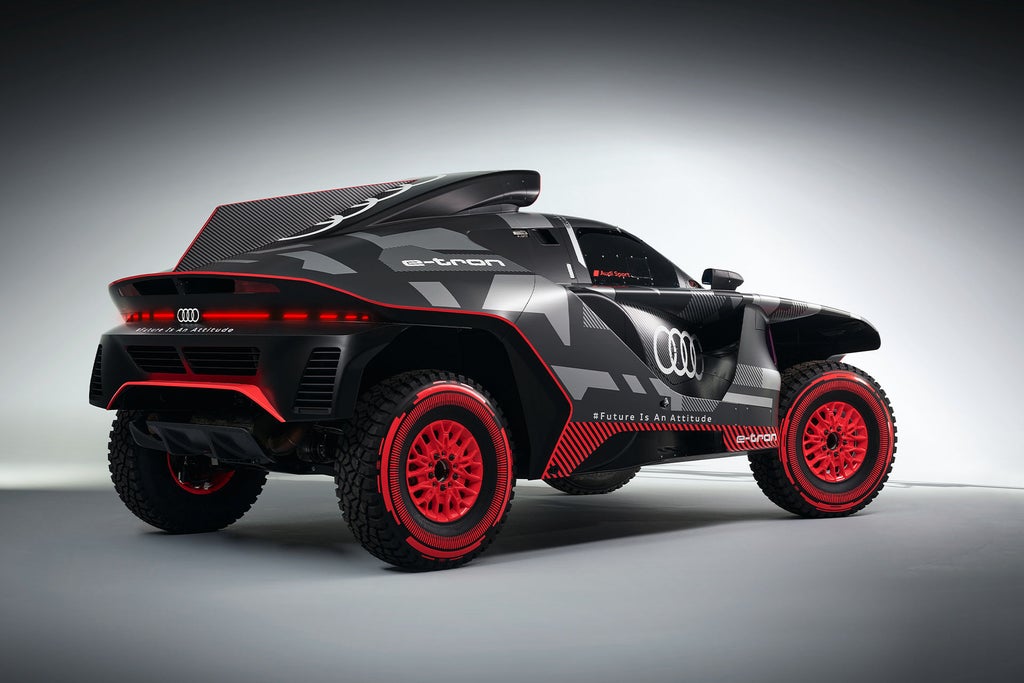
A side shot of the black-and-red Audi RS Q e-tron, in which the red rims and details in the tires are visible.
A side shot of the black-and-red Audi RS Q e-tron, in which the red rims and details in the tires are visible.

